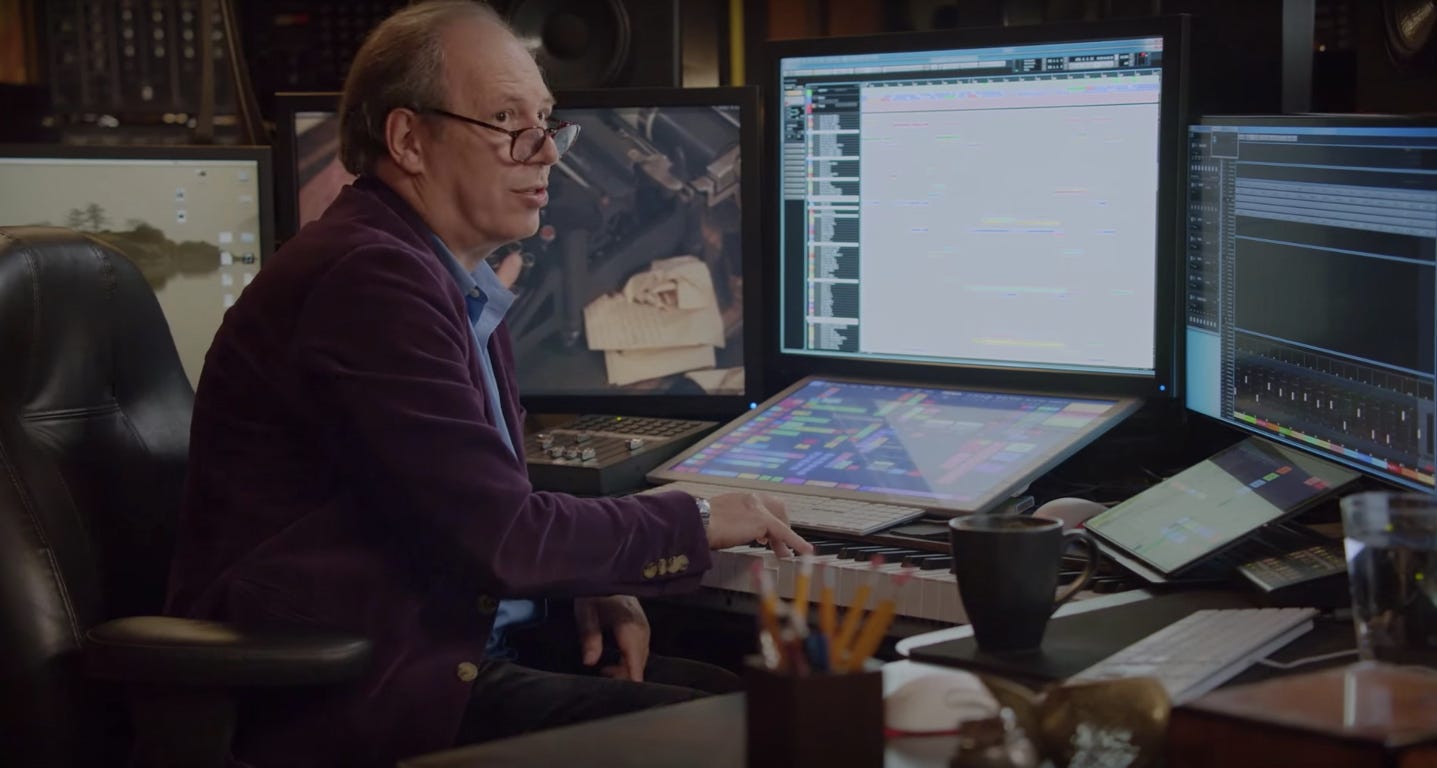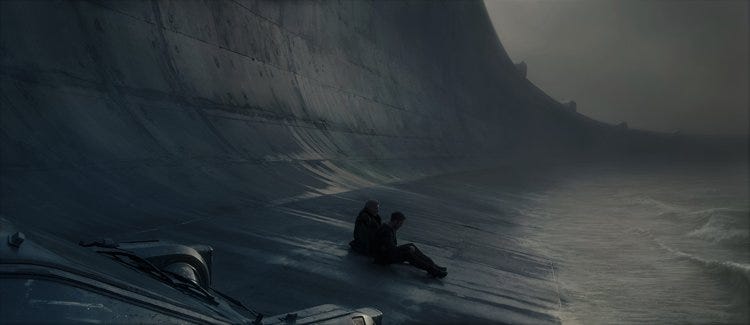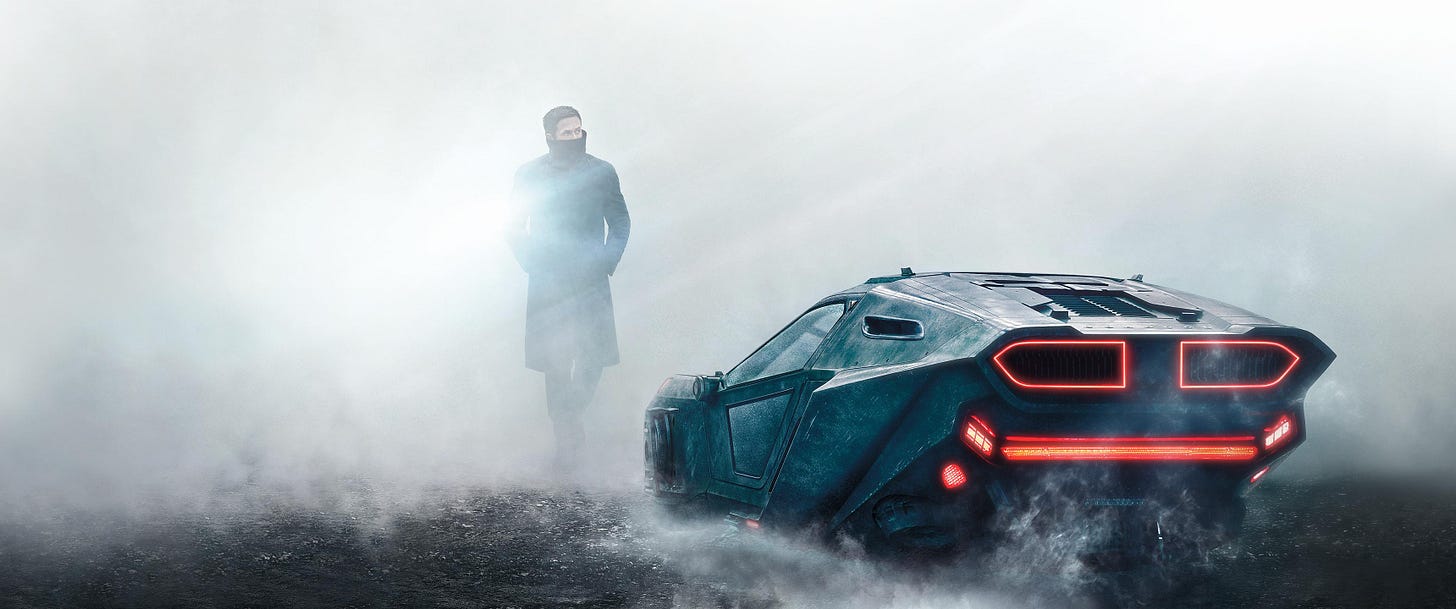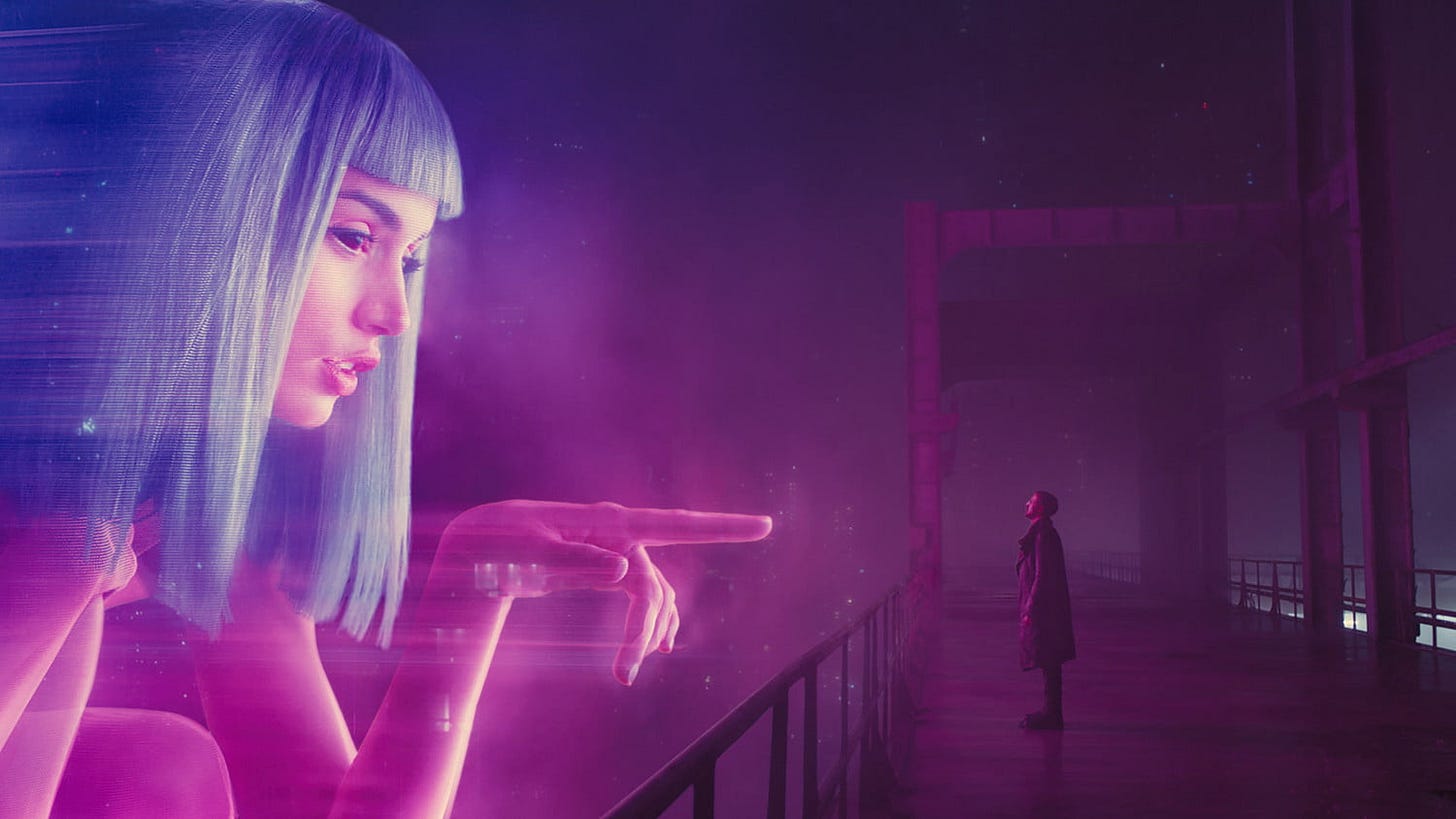"Blade Runner 2049" Film and Music Evaluation
A sequel 35 years in the making doesn’t just match the original, but improves upon it, with aid from a stunning Hans Zimmer score.
Blade Runner 2049 follows K (Ryan Gosling), a Los Angeles Blade Runner, tasked with hunting down old models of “replicants,” highly functioning and realistic robots in human form. After completing one such assignment, K uncovers a huge secret that has the potential to change the lives of humans and replicants alike. He must track down former blade runner Rick Deckard (Harrison Ford) to find the answers to the questions posed by such a secret.
The film is a science fiction piece, following Ridley Scott’s Blade Runner (1982), which is in turn based on Philip K. Dick’s book Do Androids Dream of Electric Sheep? (1968). It portrays the western United States in a dystopian future, mainly in Los Angeles, but also traveling to the wasteland of San Diego and abandoned ghost town of Las Vegas along the way.
Blade Runner 2049’s purpose is a daunting one, exploring the meaning of life and one’s purpose in living. Officer K wants to know how he fits into the scheme of things in his job, in the city, and as a replicant. The journey of the story through his self-questioning, hopefulness, despair, and acceptance is an experience for the entire audience, and leaves contemplative questions even after the film is over.
I believe characters and story are equally important in this film. Director Dennis Villeneuve crafted a brilliant story that fully immersed the audience and left viewers wondering what would happen next. On the other hand, Villeneuve also created relatable characters - especially in K, Joi, and Deckard - that have an “everyman” quality to them. Audiences can easily place themselves in each character's’ shoes and see how they change as the movie progresses.
The director’s focus is on ideas in the film, making a clear social statement on human nature. The replicants (androids) in the film find themselves experiencing real human emotions like love, hurt, and longing, while many of the humans in the film are cold, harsh, and display a general apathy and lack of emotions. Which is more human - the androids with feelings or the uncaring people of the world?
The central conflict in the film is man vs. himself. Officer K desires to find love and belonging in the world, and when he cannot find that, he struggles with the repercussions. Then when he discovers the secret of the film, he has once again potentially found meaning again, and the rest of the film involves his search for meaning. Another conflict in the film is man vs. machine. The world in 2049 is facing a dilemma about what kind of rights and privileges a “replicant” should have - should they be considered the same as human?
The film is a masterpiece, from cinematography to costume design to visual effects. Though the long runtime may bother some, the story is on such a grand scale that it warrants the length. I think the epic nature of the film set against the intimate conflict is what allows it to succeed - one can feel the huge scope but also deeply relate to the wonderfully crafted characters.
Music in Blade Runner 2049
Hans Zimmer and Benjamin Wallfisch created the score to Blade Runner 2049, and Zimmer’s fingerprints lie all over the score, containing many of his trademarks especially from recent years.
A four note piano theme is common for Zimmer in recent years, present in Inception, 12 Years a Slave, The Lone Ranger, and Interstellar. The concept behind using a four note theme is the ability to slowly build up the theme in dynamics and intensity as the emotions in the film build - the repetitiveness then creates emotion in the listener.

Another Zimmer trademark is the use of synthesizers. Using Zimmer as the film’s composer seems like the perfect fit since the world of Blade Runner is known for the heavy use of synths. Zimmer was one of the first composers to consistently integrate synthesizers into film music, so he was in his comfort zone for this score.
Lastly Zimmer is known for loud “bursts” of sound, often in horns, percussion, or distorted synths. This pattern can also be traced back to Inception, where he created what is now affectionately referred to as the “horn of doom.” This burst of sound is present yet again in Blade Runner 2049, used for scene changes, surprising moments, and intense moments of action.
Overall in Blade Runner 2049, Hans Zimmer and Benjamin Wallfisch created a true masterpiece that is worthy of following Vangelis’ iconic score to the original film, although a few music cues lose “focus” and are just noise. This is the main weakness of the score - its occasional venture into the world of sound design. The music becomes nearly unlistenable as notes, chords, and melodies are no longer present, just noises. This is a common modern trend in chaotic or troublesome film scenes, but it seems to be a cheap way out of writing music to represent the scene.
The strengths of the score are in its instrument design (largely constructed using old synthesizers) and its melodic content. Though the themes and melodies are simple, they leave a lasting impression and are clearly placed and distinguishable within the film. A haunting four note theme representing the “secret” in the film is used the most, but other themes such as Joi’s theme, an action theme, and a theme for the city are present frequently.

Closing Thoughts
It can be hard to make a good sequel in Hollywood - just ask any number of filmmakers that tried their hand at catching lightning in a bottle twice. Blade Runner 2049 honors the original film, but also brings it into the modern day, shedding light on current issues and giving viewers a bleak vision of what the future could be. Although the film is long and slow-paced, every aspect of this beautiful film is thoughtfully created to connect with the audience, including story, visuals, and musical score. This is a rare instance in which I give a film a perfect score - five out of five stars.



